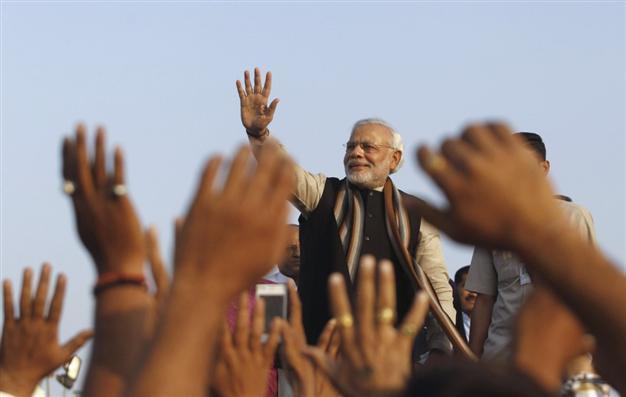ANALYSIS: Modi’s triumph in India 'spectacular', but no honeymoon

Narendra Modi (Reuters photo)
Narendra Modi’s unprecedented election victory means that India’s most controversial politician – as well as its most business friendly – will have a firm hold on power in Delhi for the next five years, but his administration cannot count on a honeymoon period, the U.K.-based international consulting firm Oxford Analytica has said in a special report released on June 5.
According to
the report, nearly half the electorate favors sub-national regional parties, emboldening state governments which frequently and fiercely assert independence in a range of policy areas. Economic growth has slowed to around 5% – close to half the rate of expansion achieved during the 2003-08 boom – just as voter demands for cleaner governance, improved services delivery and quality jobs have reached an all-time high.
Modi’s foreign policy challenges are equally formidable; the new prime minister must contend with rising Chinese assertiveness, NATO’s withdrawal from Afghanistan and growing Western demands for India to act as a stabilizing force in an increasingly insecure neighborhood.
By analyzing Modi's leadership style, policy priorities and key stakeholders in India, Oxford Analytica predicts a hawkish monetary policy, easy financial sector reforms and a defence overhaul. Fiscal consolidation will be the government's medium-term goal. While revenue augmentation will be challenging, land reforms are seen as "not impossible" in the report.
Modi's election victory is without precedent in the past 30 years of Indian politics. With 282 seats in the 545-member lower house, his Bharatiya Janata Party (BJP) is the first to achieve a single-party majority since 1984 – and, with its close allies, now commands 336 seats.
